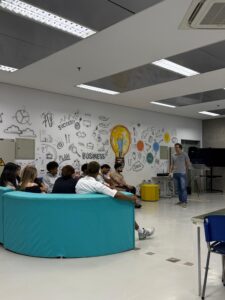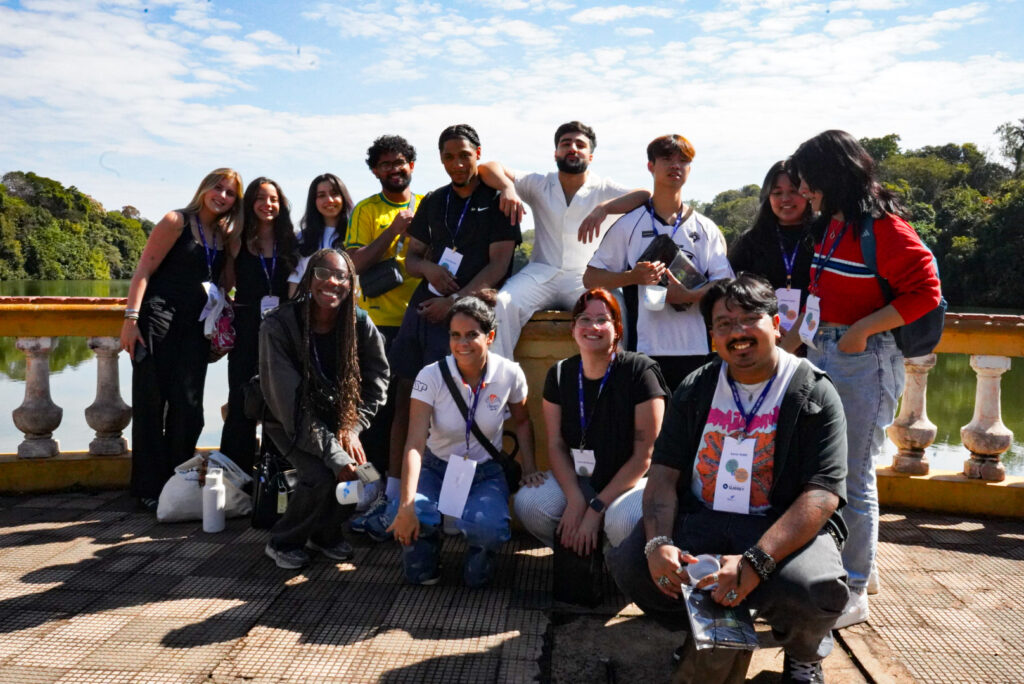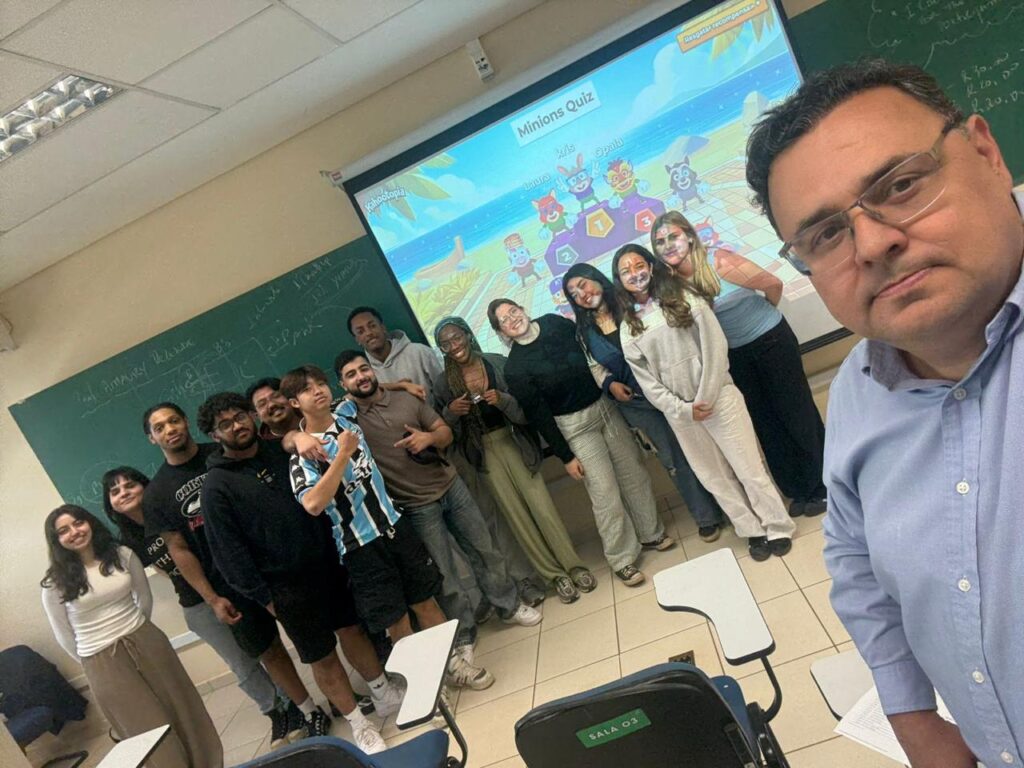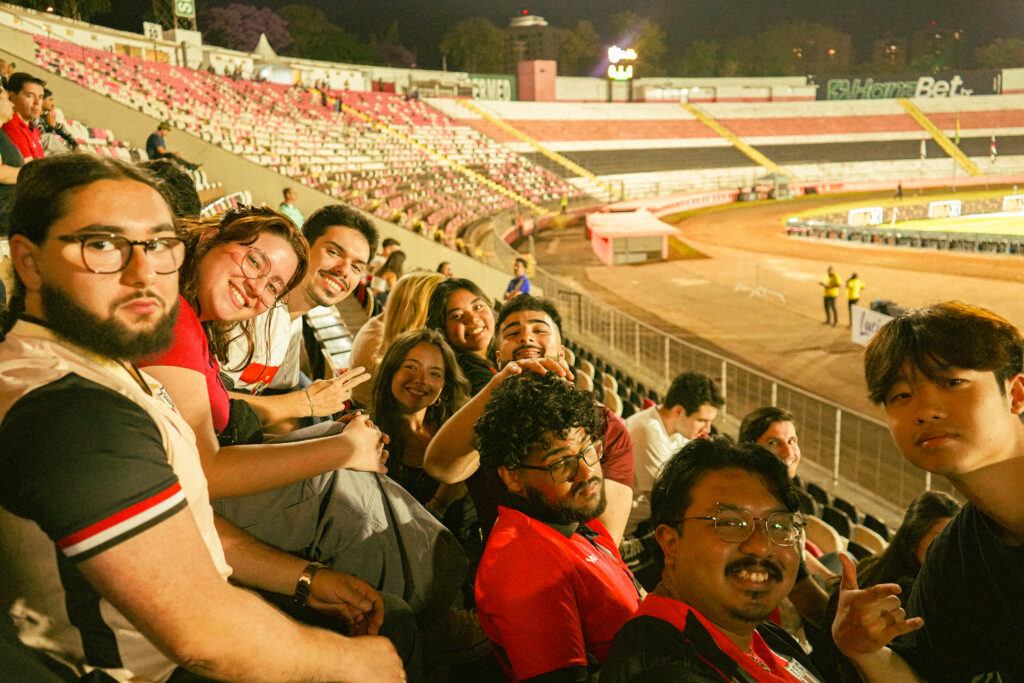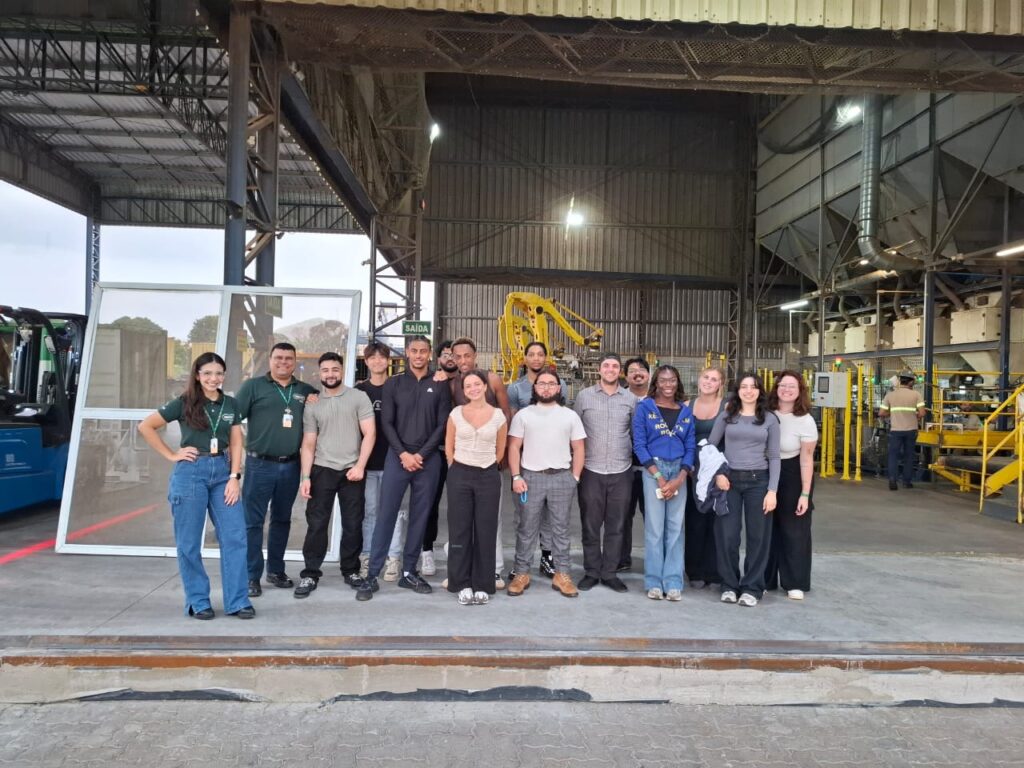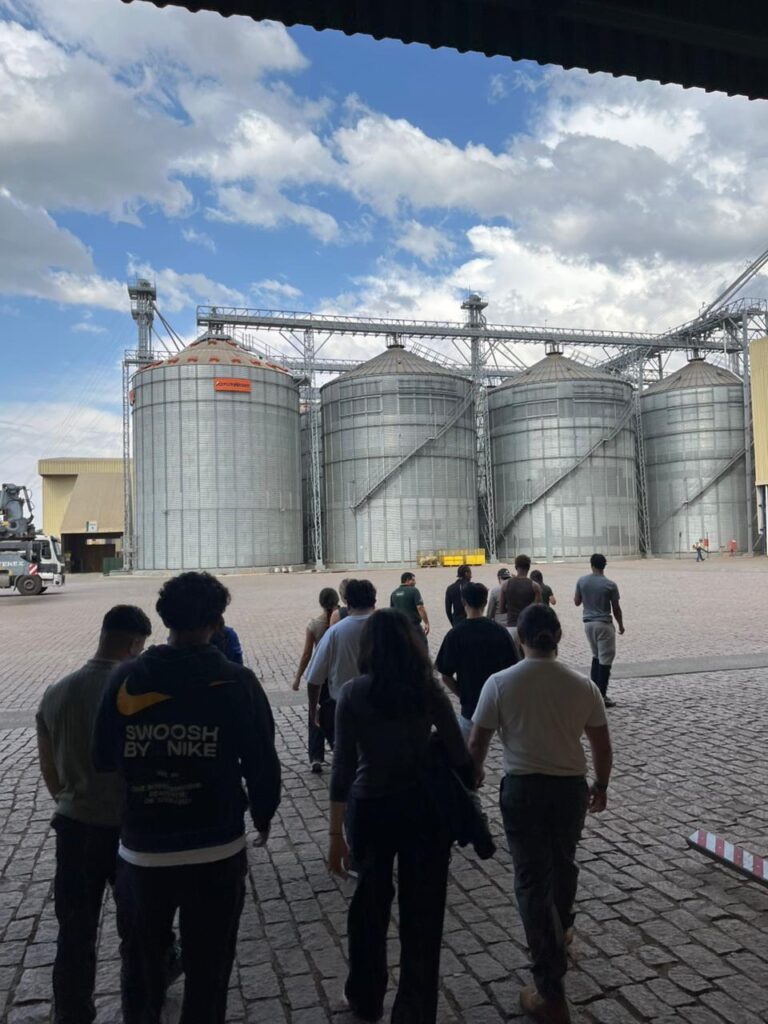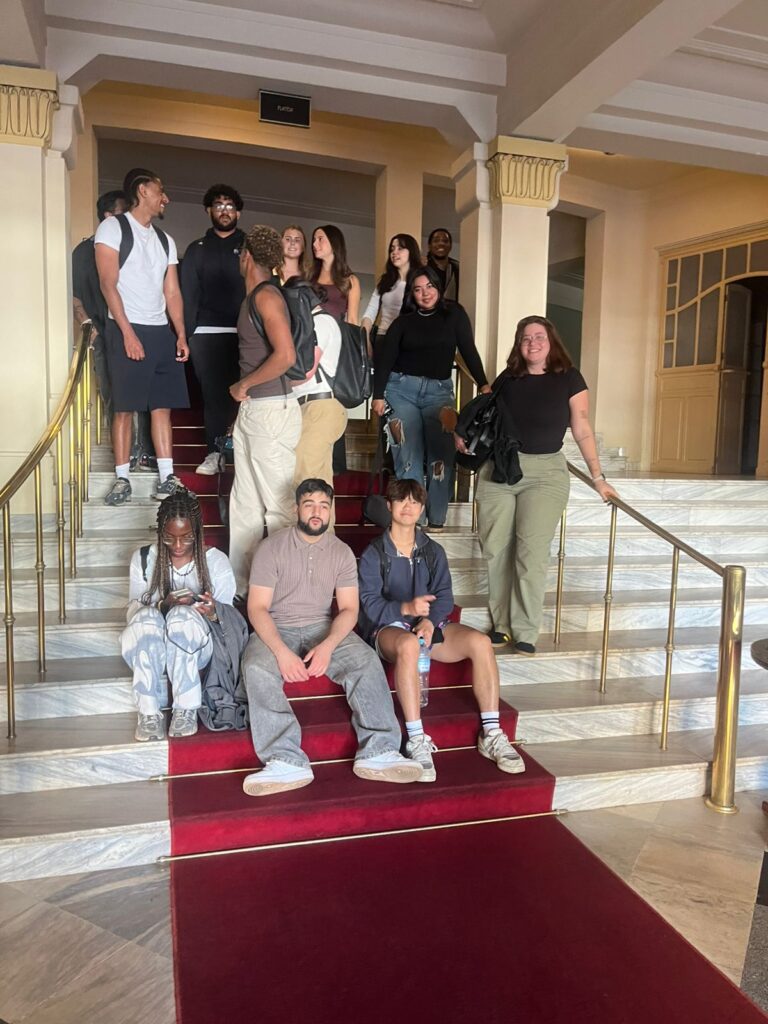From July 15 to August 11, 2025, FEA-RP held the eighth edition of the Brazilian Business & Culture Program—FEA-RP Summer School. The Summer School is an intensive Program focused on the Brazilian Economy, Culture, and Agribusiness.
Reception day
The 2025 event, which had the theme “Economics, Business Administration & Accounting in Brazil”, was attended by 14 students, 12 of whom were from the University of Surrey / UK.
The event planning was jointly developed between the International Office of FEA-RP, with the course coordinated by Professor Ricardo Rocha de Azevedo and Professor Renato Schwambach Vieira, and the International Office of the University of Surrey, coordinated by Alice Gidman.
The Summer Course included several activities, including classes, seminars, short talks, cultural visits, and workshops, where students could interact directly with FEA-RP professors.
The course was organized into six main topics (Agribusiness, Economics and Brazilian Economy, Brazilian Accounting, Doing Business in Brazil, Portuguese, and Project Development).
The course focused on the Brazilian market, providing students with insights into the Brazilian economy, its unique accounting practices, and the intricacies of conducting business in Brazil. Participants gained a deep understanding of Brazil from economic, administrative, and accounting perspectives. The course also offered expert insights into the regional economy, focusing on agribusiness. Portuguese classes were included to enhance students’ immersion in the Brazilian experience and to reveal fundamental aspects of the country’s culture.
The event was attended by 16 FEA-RP professors from economics, administration and accounting, and 1 invited external professor, indicating a broad engagement in welcoming the students. Were presented 14 main lectures to participants:
- Brazilian Economy: Current Challenges and Future Scenarios
- Accounting and Financial Management in Regulated Sectors
- Reforming Brazilian Federalism: Challenges and Prospects
- The Importance of Accounting for Businesses
- Economic and Social Aspects of the Brazilian Economy: An international comparison
- Brazilian Agricultural Economics
- Management control and Brazilian culture
- Brazilian Economy: Foreign Direct Investments and the Challenges in Doing Business
- Brazilian Innovation System
- Value Proposition Canvas: Creating and Validating Value Propositions
- Accountability in the public sector in Brazil
- Neuromarketing for Place Brands: A Study of Brazil’s Destination Country Brand
- Brazilian Culture and State Redefinition: Administrative Reforms and Public Partnerships
- Overview of the Brazilian Tax System
Participation in cultural visits
Participants were able to take part in a variety of activities as part of the Summer School program, getting to know personally various economic and cultural activities in the region and the State of São Paulo:
Visit to the Portinari’s House Museum
During the introductory course in Brazilian Portuguese, the students visited the hometown and house of Candido Portinari, one of Brazil’s most prolific and best-loved painters. Students spoke Portuguese to guides and got a glimpse of rural life in the last century at the extended family home, now preserved as a museum. Against the backdrop of his origins, Portinari’s early sketches and murals provide context for the artist’s 5000+ works on diverse aspects of Brazilian life.
Visit to a Botafogo-SP match
The students managed to immerse themselves in local soccer culture while attending a match from Ribeirão Preto’s most successful club, Botafogo. They were able to interact with Botafogo’s fans, mascots and get a glimpse of the Brazilian’s passion for soccer and their clubs.
Visit to Cooxupé – Coffee Cooperative
The students visited the Cooxupé Cooperative in Guaxupé, Minas Gerais. Cooxupé is the sixth-largest cooperative in Brazilian agribusiness and the largest individual producer and exporter of coffee globally, accounting for 15% of Brazil’s coffee production. The cooperative has over 20,000 members, 97% of whom are small producers. The students had the opportunity to visit the cooperative’s grain sampling and pricing centre, as well as the coffee storage and processing warehouses at the Japy Complex, the largest coffee storage and processing centre in the world, with a storage capacity of 1.5 million bags and an unloading capacity of 4,000 bags per hour.
Visit to different points of interest in Ribeirão Preto
The students were able to see some of the city’s iconic spaces, such as the Theatro Pedro II, the municipal library and the city zoo. This was an opportunity for them to know more about Ribeirão Preto and its leisure activities.
Visit to Usina da Pedra
During the Summer Course, students had the opportunity to visit one of Pedra Agroindustrial’s production plants, in Serrana/SP. Pedra Agroindustrial is a company focused on clean energy production through the use of sugarcane. There the students observed the production process, from sugarcane planting to milling and sugar and ethanol production. This experience is particularly relevant in the Brazilian context, as the country is the world’s second-largest ethanol producer and the largest sugarcane producer.
Visit to Smar S/A
Based in Ribeirão Preto’s neighbor city Sertãozinho, SMAR is a Technology Company, specialized in providing solutions for the control and automation of industrial processes. They develop, manufacture and sell instruments, controllers, hardware and software for measuring, controlling, operating and managing maintenance assets. There, the students were able to observe the factory’s machinery and production processes, while also learning about their business model.
Visit to Supera Park
For their last visit during the course, the Students went to Supera Park, a technology and innovation center, created in a partnership between University of São Paulo, City Hall of Ribeirão Preto and the Department of Development of the State of São Paulo. There, they got to know about the many startup companies from different economic segments that Supera has attracted and assisted to grow.

